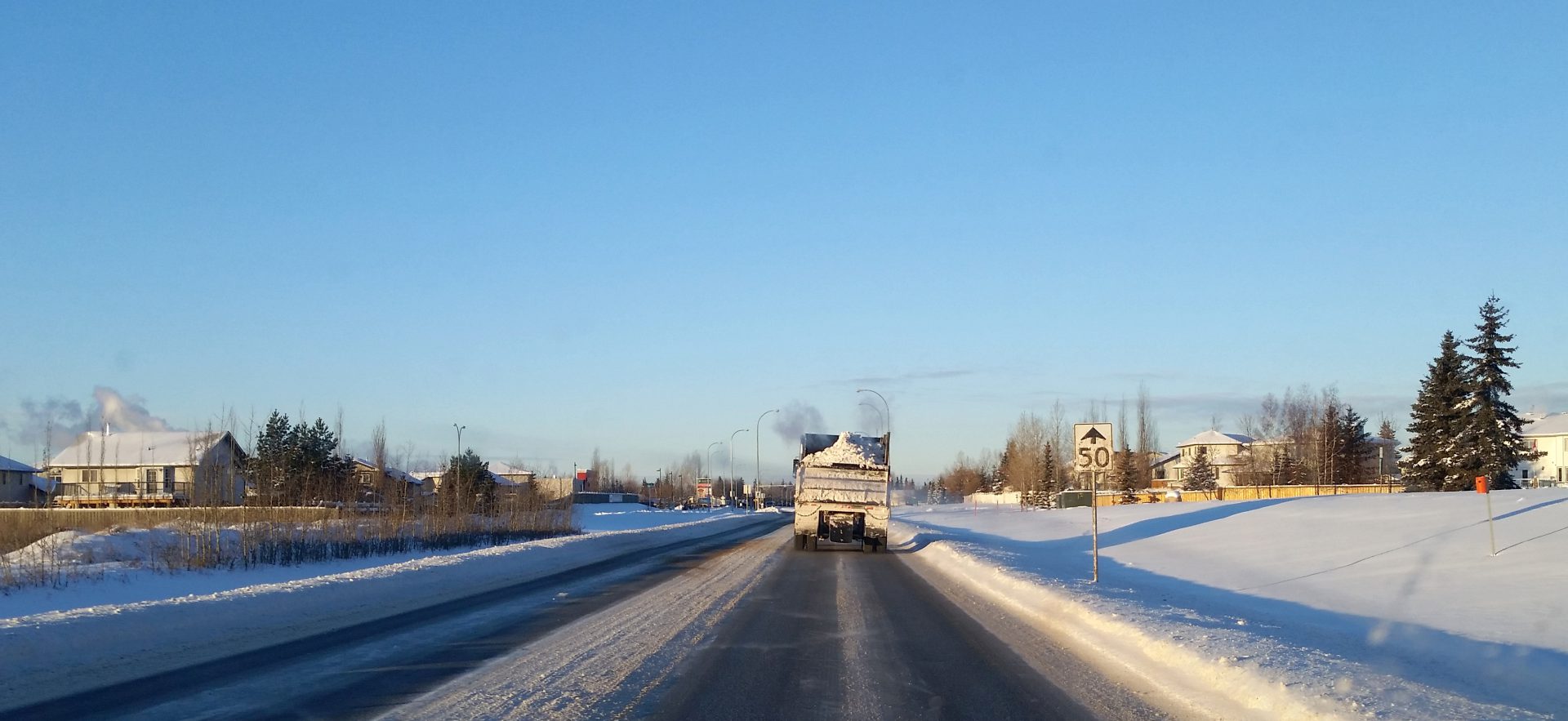With residential snow clearing now in full swing, many Grande Prairie residents are once again wondering why they’re left with a windrow to clear. The city is now in the third year of its new snow removal program, which heads to residential areas the day before their garbage pickup.
Transportation Manager Robert Carroll admits it’s not a perfect system, but argues people forget how bad it was before.
“I remember people calling me almost in tears wondering when we were going to get to their neighbourhood and because we didn’t have the scheduled service and we didn’t have a really good gauge of how long it took to get through areas I couldn’t really give them any day; I said, ‘well, we’ll be there some time in the next three weeks.”
After a major snowfall, the city says they can get windrows on priority roads collected within 4 to 8 days. Residential neighbourhoods should be cleared within 10 days, when that process used to take six to eight weeks. Up to 90 per cent of those areas are generally done within the first five days.
Carroll believes the system is the best they can do considering the environment and the amount of money in the budget. Nearly $5.5 million dollars is budgeted for snow removal in the 2017 budget. A complete round of just residential plowing costs the city about $200,000.
“Throw enough money at it and I’ll fix it; I’ll fix it real nice and people won’t have to deal with anything, but people don’t want to pay any more tax and I hear them.”
There were concerns about emergency services being able to reach people in their homes years ago that are no longer an issue. Snow plows would also have to find areas around the city like cul de sacs to temporarily hold the snow and now it’s all trucked to a dump site.
Anyone who can’t remove the windrow at the end of their driveway can apply to have the city take care of it. If residents want a change, Carroll encourages them to reach out at a city council meeting, adding that no, the mayor doesn’t get his driveway cleared.
“I’m 100 per cent sure the mayor gets treated just like everybody else. You can read all you want on social media about people getting preferential treatment because they’re the mayor, but we don’t design our service that way.”



